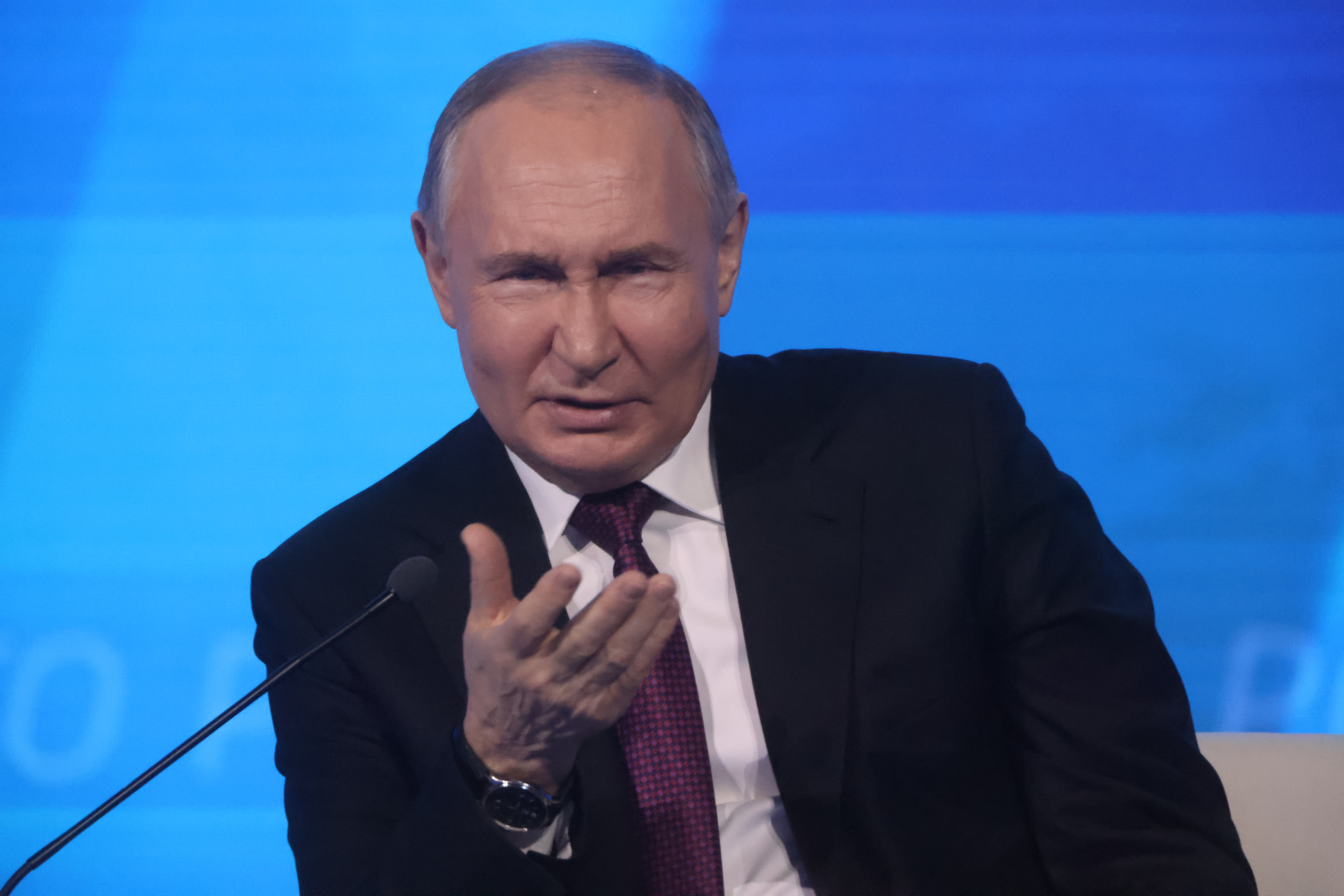
Thanks to the statesmanship of Speaker Mike Johnson, Russian President Vladimir Putin has suffered a very bad week.
The House of Representatives passed Saturday a $60.84 billion aid package for Ukraine.
The Senate passed it Tuesday, and Wednesday the president signed it into law.
Weapons from the package are already arriving in Ukraine.
The Kremlin has closely followed and celebrated the nearly seven-month delay in US aid.
The reason is easy to understand. As Putin himself made clear in Tucker Carlson’s deferential February interview, if the United States stopped sending weapons, the war would be over “in weeks.”
While Putin’s timeframe is hyperbole, it is true that without substantial American military aid, Ukraine cannot stop Russian aggression and the Kremlin could win.
Weeks after the September failure to pass the aid package, Ukrainian forces started to ration their use of ordnance, the main reason the Russians made incremental gains on the battlefield including taking Avdiivka and now closing in on the town of Chasiv Yar.
With American arms starting to arrive, Kyiv can stop rationing ammunition, and Moscow’s position short of Chasiv Yar may prove to be the high-water mark of its current offensive.
And the legislation’s call for closer oversight on aid appears to have persuaded the administration to do something it should have done earlier — plus-up the US embassy’s Office of Defense Cooperation in Ukraine to help with all things military-aid related.
This is a welcome measure to regularize and oversee our military aid to Ukraine, which is absolutely essential to ensure Putin loses this war.
That is not the end of Putin’s bad week.
The package of bills passed included the REPO Act, which gives the president the authority to transfer frozen Russian state assets in the United States to Ukraine to compensate for the estimated $500 billion in damage Kremlin aggression has caused there.
While it’s widely believed there are only $5 billion of such Russian assets here, far larger sums of US dollars are held by US financial institutions in the correspondent accounts for foreign depositories such as Belgium’s Euroclear.
Such links confer US jurisdiction, as many international banks discovered not so long ago in cases involving sanctions evasion or money laundering.
Strong American leadership on this issue — not a given but moving in the right direction — could help persuade the other G7 countries to act.
Canada and the United Kingdom are already interested in this.
This has caused great anxiety in Moscow and apparently among some American politicians such as Sens. Mike Lee and J.D. Vance, who inexplicably criticize the effort to make Russia pay for the great destruction it has visited on Ukraine.
Perhaps most surprising in the Kremlin’s week from hell was Donald Trump’s April 18 post noting the survival of Ukraine is important to America.
Moscow has been counting on the prospect of Trump winning the election and pursuing the weak policy toward Russia and Ukraine advocated by some of his loudest supporters, such as Marjorie Taylor Greene, Matt Gaetz and Vance.
Perhaps Moscow forgot that Trump, unlike Barack Obama, sent Ukraine anti-tank Javelins.
Perhaps it hadn’t noticed that unlike those naïve politicians, Trump since last fall has not spoken out against aid to Ukraine.
In any case, this gives Moscow good reason to wonder if its elaborate plan to promote isolationism and political strife in America will bear fruit.
This development could also add to Moscow’s woes as it gives the White House a political reason to pursue a bolder policy in Ukraine.
Over the past two years, the Biden team, deterred by the Kremlin’s threats of nuclear escalation, has been consistently slow in sending Ukraine the weapons it needs — the principal reason for the small gains of Ukraine’s land counteroffensive last year.
Biden now needs to take into account the possibility Trump may start to call him on this.
Indeed, it would be smart politics for Trump to find his inner Ronald Reagan — recent polls show a 60% majority of voters in swing districts favor strong US support for Ukraine.
John Herbst is director of the Atlantic Council’s Eurasia Center and a former US ambassador to Ukraine under George W. Bush.














